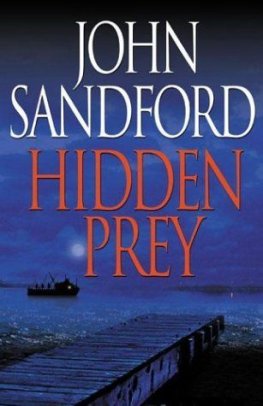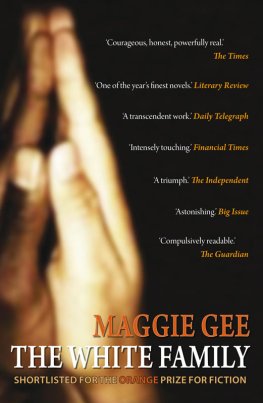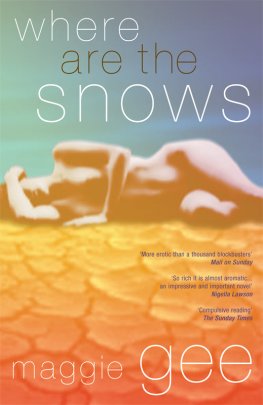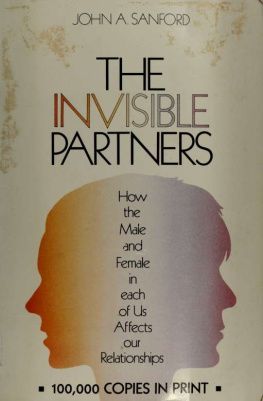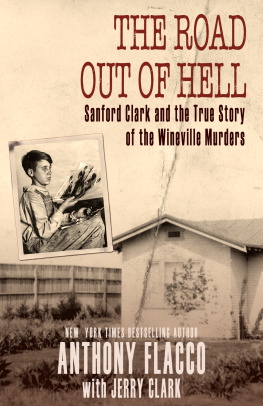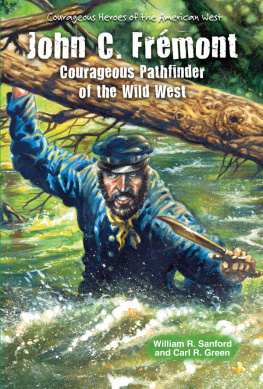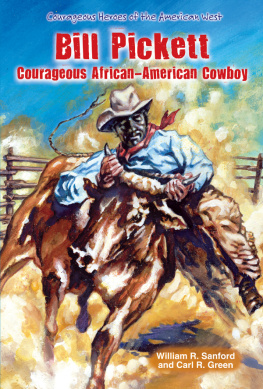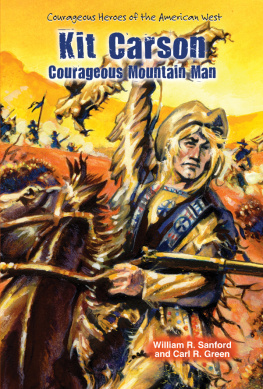MAGGIE
A LOVE STORY
by John Sanford

For copyright reasons, any images not belonging to the original author have been
removed from this book. The text has not been changed, and may still contain
references to missing images.
This electronic edition published in 2013 by Bloomsbury Reader
Bloomsbury Reader is a division of Bloomsbury Publishing Plc, 50 Bedford Square,
London WC1B 3DP
First published in Great Britain 1993 by Barricade Books
Copyright 1993 John B. Sanford
All rights reserved
You may not copy, distribute, transmit, reproduce or otherwise
make available this publication (or any part of it) in any form, or by any means
(including without limitation electronic, digital, optical, mechanical, photocopying,
printing, recording or otherwise), without the prior written permission of the
publisher. Any person who does any unauthorised act in relation to this publication
may be liable to criminal prosecution and civil claims for damages.
The moral right of the author is asserted.
eISBN: 9781448211630
Visit www.bloomsburyreader.com to find out more about our authors and their books
You will find extracts, author interviews, author events and you can sign up for
newsletters to be the first to hear about our latest releases and special offers.
To Maggie
19051989
Dream of little fat angels
Contents
[The Sacco-Vanzetti Jury]
[I.W.W. John]
[Ty Cobb 18861961]
[Charlie Chaplin 18891977]
[The Spanish Civil War 19368]
[Thomas Wolfe, 190038]
[Emily Hale, 18911969]
[J. Robert Oppenheimer, 190467]
[Richard Milhous Nixon, 1913 ]
[Martin Berkeley, 1904 ]
[Billy Graham, 1918 ]
[George Patton, Jr., 18851945]
[Truman Capote, 192484]
[Oliver North 1941]
[Sacco and Vanzetti]
In 1936, when you became acquainted with Marguerite Roberts, the "Maggie" of this Memoir, she was a scenario-writer at the Paramount Studios in Hollywood. You were a novelist, recently brought by the Company from New York in the hope of making you over into a writer for the screen. The hope was never realized; after a years trial, you were found to be incapable of writing under supervision and against a deadline, and you were released.
Maggie, by then your wife, had long been alive to what Paramount had missedthat you wrote to suit yourself and at the pace of your choosing, and that your strong point (your "main holt," as she put it) was the making of books. Accordingly, she sent you home to do what in her opinion you did best, and from the earnings of her flourishing career, she supported you through a matchless marriage that lasted until her death more than fifty years later. To the two books you had written before meeting her, you added another eighteen, none of which, whether or not a credit to literature, would have come into being without her unassailable belief in you and her always open hand. So sustained, you enjoyed a rare freedom, that of disregarding the taste and temper of the time: you might write as you pleased and still dine on the morrow.
A rebel to begin with, a rebel you would remain, but you were due to be shown that even in the land of liberty, the freedom-road was a toll-road, and though dimly you must have known as much, you chose it all the same. Personal dissent led you to political dissent, and in 1939, you joined the Communist Party; Maggie, desiring only to accompany you, to go whither you went, followed your headlong lead.
Calamity now awaited you around one of the bends in the road.
It befell you during the daft days of the McCarthy era. In 1951, while the craze was at its height, you and Maggie were summoned before the House Committee on UnAmerican Activities, and there you were commanded to reveal the names of your associatesto inform against them, or, as the work was called in the slang of the day, to "fink." When neither of you would comply, you were branded "unfriendly witnesses" and denounced as citizens disloyal to your country.
As to yourself, since you were in no ones hire, the effect was slight. As to Maggie, who was under long-term contract to Metro-Goldwyn-Mayer, it was disastrous. Her employment was terminated, and she was placed on the Blacklist of the motion picture industryand there she would stay for the next nine years. The economic damage was of course severe, but she suffered a loss greater by far and inexpressible in numbers. To her mind, exclusion from her profession was the equivalent of banishment, and it forever destroyed her feeling of affiliation; she had been made stateless, and even after the ban was lifted, she was never at home in her own country. All this, alas, for refusing to become a Judas!
For most people, life is the same round repeated until their time runs out. Such lives are lived with the quiet desperation noted by Thoreau; they are "the demmed horrid grind" of Dickens, designed, it would seem, merely as a test of endurance. Few are they who come to know their true nature, for seldom are they put to the ultimate testthe sacrifice of themselves for the sake of others.
For you and Maggie, the House Committee Hearings were the ultimate test.
J. S.
[The Sacco-Vanzetti Jury]
TWELVE GOOD MEN AND TRUE
Like as the prophets were twelve to foretell the truth, the apostles twelve to preach the truth, the stones twelve that Jerusalem is built on.
a Person of Quality, 1682
The Dedham trial, Judge Webster Thayer presiding, began on the 31st of May 1921 with the selection of a jury. From a panel of 500, only seven proved acceptable to both the defense and the prosecution, whereupon the Norfolk County sheriff, at the behest of the Bench, rounded up 200 bystanders, and out of this fresh group of talesmen, the five requisite jurors were drawn. Nearly a weeks time was thus spent, and not until the 6th of June did the District Attorney, Frederick Katzmann, summon to the stand the first witness for the Commonwealth of Massachusetts.
But stay. Tell here of the twelve who would try the fact and give true answer. Tell of those prophets and apostles, those stones on which Zion was supposed to rest, tell here their twelve names:
Wallace R. Hersey
Frank R. Waugh
John E. Ganley
Frank B. Marden
Walter R. Ripley
John F. Dever
Louis McHardy
Harry E. King
George A. Gerard
Alfred L. Atwood
Frank J. McNamara
Seward B. Parker.
And yet what purpose does it serve, what light does it shed to call the roll? McNamara, Atwood, McHardydoes a patronymic decode them, reveal their heart, set Marden apart from Dever and Dever from Gerard? Whats shown of Ripley and Waugh and King that wasnt known before, and in what save the spelling is Hersey distinguished from Parker and Ganley from the twain?
For thirty days that spring and summer, theyd sit behind their twelve faces and peer out at two Eyetalians (which was Sacco, by the way, and which Vanzetti?), or would it be Thayer theyd gaze at, or Katzmann (a Jew-man, was he?), or the world through the windows in the opposite wallor, only seeming to see, would they stare at nothing at all? Would they care, any of the twelve, about a shoemaker from Torremaggiore and a fishmonger from deuce knows where?
The grocer Ganley, would his mind attune to a pair of ginnies, or would it dwell on his jars and tins and his coffee-grinder? Gerard the photographer and the mason Marden, what words would they retain of the millions theyd hear, and which would explain the torn cap, the left twist of a pistol barrel, the air of the aliens, their suspect bearing? And King and Dever, what bias would they bring from Brookline and Millis, what blind side to the brown-eyed no-spikka wops?


